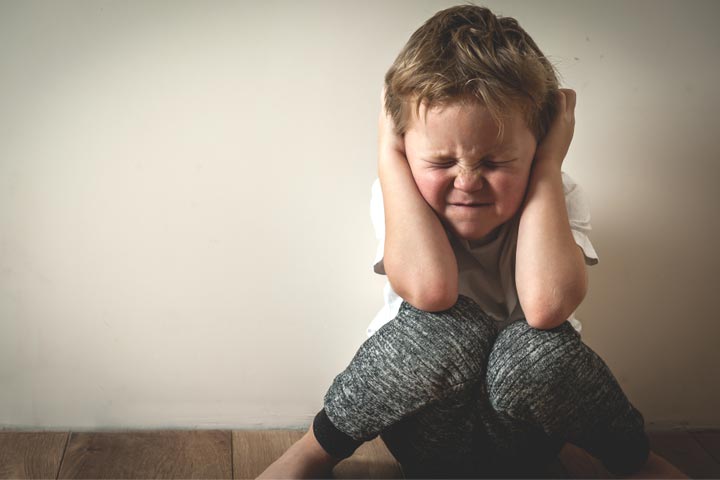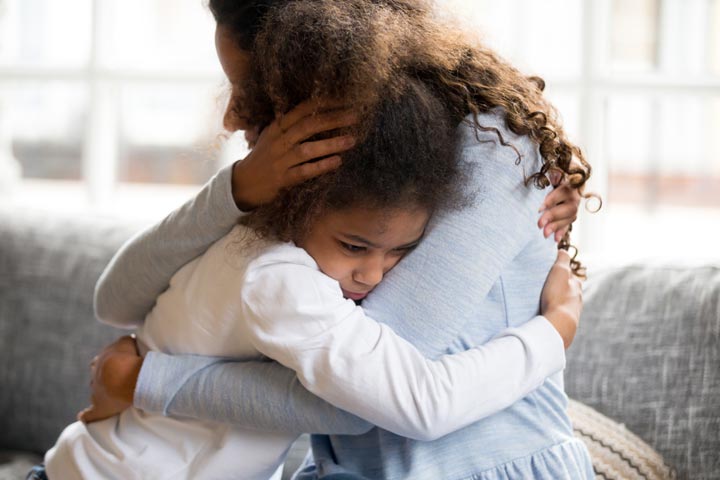
Image: Shutterstock
If we’ve all learned one thing during this lockdown, it’s that stress is a real thing. It doesn’t have to be because of work or school, or tons of assignments. Stress is your body’s natural way of reacting to specific situations, demands, or events. We often hear people say, “I need a break”. This is a typical response to being overwhelmed with stress. When you’re stressed, your body produces larger quantities of a bunch of hormones like cortisol, epinephrine, and norepinephrine to combat stress (1). As adults, we can grab a drink, watch a movie, or schedule a massage to relax and relieve stress. But how do you help your child when they are stressed?
Children deal with stressful times throughout their lives. Worrying about school work, problems with friends, bullying, peer pressure, and going through changes in the body, physically and hormonally, add to stress in children. While a little bit of stress can be managed by blowing off steam, excessive stress when not handled, can affect a child’s thoughts, actions, and feelings (2).
Kids might not be free or comfortable to talk about it. They might not express that they are stressed, but as parents, there are several ways you can respond to their stress and lend a helping hand. Here are some of the things you can ask your child to help them with stress and anxiety:
1. “What Did You Learn Today?”
Children do not express how they feel. Most often than not, they don’t recognize what they are feeling. If you ask them directly if they are stressed or bothered, they might deny it. So the best way is to lead is with curiosity and ask open-ended questions.
2. “What Are You Looking Forward To Tomorrow?”
Children are most likely to be excited about small things. If they have a poetry recital in school the next day or a basketball game with their friends, they are bound to be looking forward to it. If your child doesn’t seem too keen on the exciting events coming up, it could point to a deeper issue.
3. “What Was The Toughest Part Of The Day?”
Once you get into the habit of asking your kid about their day, it will be easier to ask the more important and more critical questions. They might even feel more comfortable to open up and share what’s bothering them.
4. “What Didn’t You Like About Your Day?”
Most kids like to talk about the fun parts of their day but do not really indulge in what’s bothering them. A subtle way of asking them would be to ask them what they liked and didn’t like about their day. This wouldn’t seem like you’re probing, and they would be comfortable talking about it.
5. “What Can We Do To Make It Better?”
This is one of the most important things you can say to your child. Once they’ve expressed their worries, you could assure them that it’s okay. Kids feel stronger when they have support. It’s important that they do not feel alone.
Every parent wants their kid to feel safe and secure. So do not rush them. The most important thing to remember is the timing. You do not want to trigger uncomfortable feelings during their bedtime. Choose the right time and help your kid destress.
It’s not easy being a kid. The amount of pressure and competition out there is enough reason for kids to feel overwhelmed and anxious. As parents, the last thing you want to do is to add on to that stress. We hope we helped you ease the process of asking your kids about stress. Share this article with other parents if you think it would be helpful.


















